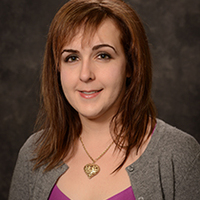- Overview
- Course and Degree Plan
- Advisory Board
- Learning Online
- Faculty & Staff
- Admission Requirements
- Tuition and Financial Aid
Online | 30 credits | 2-4 years | $1300 per credit
Application deadlines are: May 1 – Summer | July 1 – Fall | Dec 1 – Spring
Learn the Latest in Specialty Polymers
The plastics industry ranks as the third largest manufacturing industry in the U.S., with plastics production on the rise1. This, combined with increasing consumer and industry demands as well as competitive pressures, highlights the need for continued education and advancement in the area of polymer engineering.
The Master of Engineering: Polymer Engineering program will prepare you to face the many challenges that plastics companies and industry encounter every day. It will introduce you to traditional plastics, as well as the the latest innovations in specialty polymers—with growing applications in the biomedical and pharmaceutical fields, in electronics, and nanotechnology.
Benefit From a Polymer Research Leader
Researchers at the University of Wisconsin–Madison have long been interested in the creation and characterization of polymeric materials and a greater understanding of structure-property relationships.
The Polymer Engineering program provides an opportunity to learn from UW–Madison experts. The University of Wisconsin–Madison is internationally recognized for its research and teaching in polymer engineering and science, as well as its expenditures in research and development activities.
UW–Madison’s online Polymer Engineering graduate degree is a world-class program, consistently ranked in the top ten online engineering graduate programs by U.S. News & World Report.
1Data from the Society of the Plastics Industry.
Academics
Designed for working professionals, the Polymer Engineering program will benefit engineers looking to advance in the field of polymer engineering and science.
The distance-learning design of this program allows you to learn off campus at times convenient to your full-time work schedule and allows you to plan around other family and work obligations. Topics may include issues or problems related to your work interests or career goals.
Curriculum
The course curriculum is designed by leaders in the field of polymer engineering and science.
Throughout your studies, you will focus on building a solid understanding of fundamental polymer processing, the analysis of composite materials and methodologies related to computational fluid dynamics.
Courses
The Polymer Engineering curriculum is designed to provide you with technical skills in polymers, composite materials, and design applications to increase your knowledge of the plastics industry.
Degree Requirements
- 30 credits minimum
Required Courses (18 credits)
- EPD 636 Introduction to Polymers
- EPD 637 Polymer Characterization
- EPD 639 Plastics Recycling and Sustainability
- EPD 640 Introductory Polymer Rheology
- EPD 650 Introduction to Polymers Processing
- One of the following manufacturing/management courses
Electives (12 credits)
- ME 417 Transport Phenomena in Polymer Processing
- ME 418 Engineering Design with Polymers
- ME 419 Fundamentals of Injection Molding
- EPD 638 Polymer Coatings
- ME 514 Additive Manufacturing
- ME 699 Advanced Independent Study
- ME 717 Advanced Polymer Processing
- ME 718 Modeling and Simulation in Polymer Processing
Up to 6 credits from other College of Engineering subjects with Advisor approval
Students in this program may not take courses outside the prescribed curriculum without faculty advisor and program director approval. Students in this program cannot enroll concurrently in other undergraduate, graduate or certificate programs.
Chair Dr. Eric Amis
Members
- Dr. Kristoffer Stokes, Geisys Ventures
- Dr. Nicole Zacharia, UW-CoE
- Dr. Karen Xiao, Macro Engineering & Technology Inc.
- Dr. Matthew Carter, Dow Construction Chemicals
- Dr. Daniel Schmidt, 3M
- Prof. Alicyn Rhoades, Penn State Behrend
At UW-Madison, we’ve built a learning experience to meet you where you are.
Whether your work involves frequent travel, changing hours, or periods of intense demand, our courses help you grow wherever you happen to be and whenever you have online access. We develop and deliver courses for high-performing professionals, with a deep understanding of the challenges those professionals face.
As a UW student, you will be part of a vibrant community, challenged and supported by your fellow learners, as well as instructors. Our students and alumni consistently point to the value of the global professional network they develop through our programs, built through teamwork, challenges, and projects, and lasting a lifetime.
Faculty members in the polymer engineering curriculum are experts in their field and offer students an engaging educational experience that is convenient, accessible, and engaging, no matter where they are located.
- Academic Director: Nicole S. Zacharia, PhD
- Graduate Academic Advisor: Karene Cary, MS
- Faculty Director: Tim Osswald, PhD
- Robert E. Rowlands, PhD
- Kristoffer Stokes, PhD
- Lih-Sheng Turng, PhD
- Bob Weiss, PhD
- Don Baird, PhD
Admission Requirements
Application Overview
The admissions process has been designed to conduct a holistic review of your likelihood of success in the program. Decisions are based on your academic and professional background.
To start the process, please read the admission requirements to determine your eligibility. If you have questions about your eligibility, please request an eligibility review by emailing Student Services. This email should include a copy of your current resume and informal transcripts.
Admission requirements for the Master of Engineering: Polymer Engineering program are listed below.
Exceptions to standard admission requirements are considered by the admissions committee on an individual basis.
- A bachelor of science (BS) degree from a program accredited by the Accreditation Board for Engineering and Technology (ABET) or the equivalent.*
- A minimum undergraduate grade-point average (GPA) of 3.00 or the equivalent of the last 60 semester hours (approximately two years of work) or a master’s degree with a minimum cumulative GPA of 3.00. Applicants from an international institution must have a strong academic performance comparable to a 3.00 for an undergraduate or master’s degree. All GPAs are based on a 4.00 scale. We use your institution’s grading scale; do not convert your grades to a 4.00 scale.
- Applicants whose native language is not English must provide scores from the Test of English as a Foreign Language (TOEFL). The minimum acceptable score on the TOEFL is 580 on the written version, 243 on the computer version, or 92 on the Internet version.
- International applicants must have a degree comparable to an approved U.S. bachelor’s degree.
- Applicants may submit scores from the Graduate Record Examination (GRE), but are not required to.
*Equivalency to an ABET accredited program: Applicants who do not hold a bachelor’s degree from an ABET accredited program may also qualify for admission to the program. Such applicants must have a BS in science, technology, or a related field with sufficient coursework and professional experience to demonstrate proficiency in engineering practice OR at least 16 credits of math and science coursework. Registration as a professional engineer by examination, if achieved, should be documented to support your application.
All applicants are advised to determine whether this program meets requirements for licensure in the state where they live. See the National Society of Professional Engineers website for contact information for state licensing boards
Tuition Costs
$1,300 per credit, payable at the beginning of each semester.
Tuition includes:
- Technology costs for online course delivery
- Library use
- Advising
- Technical support
- Access to campus computing resources
Total Tuition
Total tuition for this program is $39,000*.
*This total does not include textbooks or course software. Software required for courses is typically available in educational versions at substantial discounts.
Federal Loans
Students who are U.S. citizens or permanent residents are eligible to receive some level of funding through the Federal Direct loan program. These loans are available to qualified graduate students who are taking at least four credits during the fall and spring semesters, and two credits during summer. Private loans are also available. Learn more about financial aid.
Employer Support
Many students receive some financial support from their employers. Often, students find it beneficial to sit down with their employer and discuss how this program applies to their current and future responsibilities. Other key points to discuss include how participation will not interrupt your work schedule.
Nicole S. Zacharia, PhD
Academic Director
Karene Cary
Graduate Advisor
MEPE Minute Blog
MEPE Minute: How Processing Additives Can Help Enable the Circular Economy
We all know that polyolefins are incredibly versatile materials that have application in many kinds of packaging and other products. However, they are hydrophobic and it can be difficult to compatibilize their surfaces with other …
MEPE Minute: Plasticosis is officially a “thing”
For some years now, it has been known that plastic pollution is increasingly collecting in bodies of water (salt and fresh) and elsewhere in our environment. In most locations where they look, scientists find plastic; …
- See more stories


